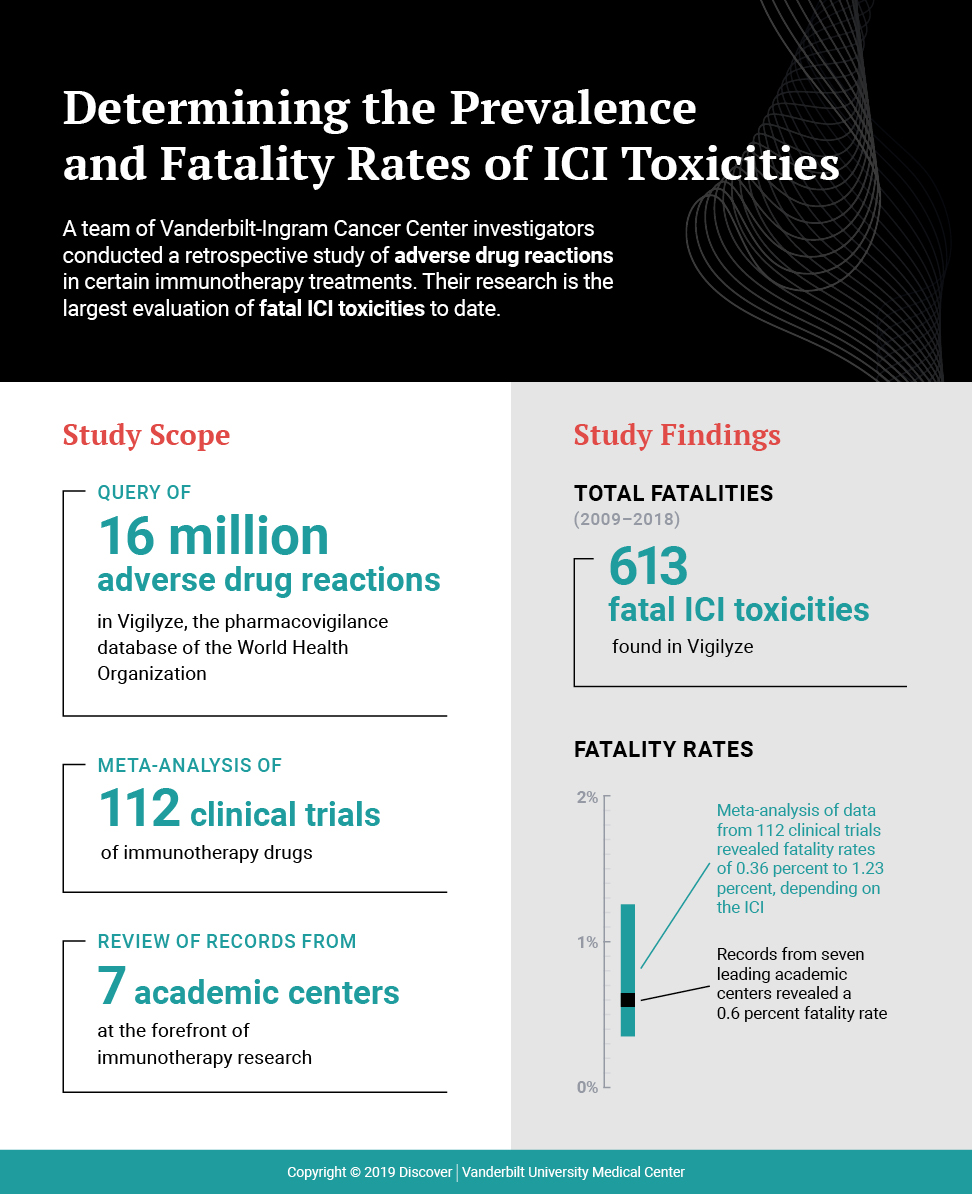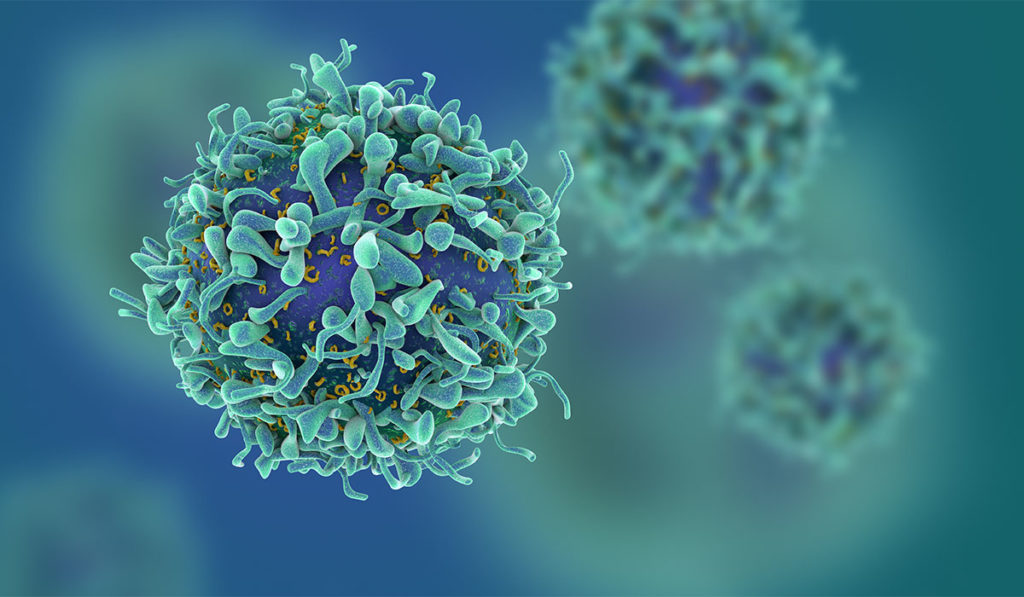Immune checkpoint inhibitors (ICIs) are now a mainstay of cancer treatment. In rare cases, rapid and fatal toxic effects may complicate these otherwise transformative therapies, unleashing the immune system to attack not only cancer, but organs as well—causing myocarditis, pneumonitis, hepatitis and colitis. Steroids are prescribed to relieve the resulting inflammation and are usually extremely effective.
To determine the spectrum, timing, and clinical features of these fatal ICI-associated toxic effects, Vanderbilt-Ingram Cancer Center investigators have conducted a retrospective study of adverse drug reactions in immunotherapy treatment targeting cytotoxic T lymphocyte antigen-4 (CTLA-4) and programmed death-1/ligand-1 (PD-1/PD-L1). Their research, which appeared in JAMA Oncology in September 2018, is the largest evaluation of fatal ICI toxicities published to date.
“These drugs have transformed the treatment of metastatic cancers,” said Douglas Johnson, M.D., assistant professor in Vanderbilt’s Division of Hematology and Oncology and principal investigator for the study. “We have clinics full of patients now who received ICIs and who are alive today because they responded to them. However, we wanted to find out why a small group of patients developed fatal toxicity.”
A Multi-Database Approach
The team queried the World Health Organization (WHO) pharmacovigilance database (Vigilyze), comprising more than 16 million adverse drug reactions. They also conducted a meta-analysis of published trials for the drugs and reviewed the records from seven academic centers, including Vanderbilt, that have been at the forefront of immunotherapy research.
From 2009 to 2018, the researchers found 613 fatal ICI toxicities within Vigilyze. The review of records from the seven academic centers revealed a 0.6 percent fatality rate. Meta-analysis of data from 112 clinical trials revealed a fatality death rate ranging from 0.36 percent to 1.23 percent, depending upon the specific type of ICI.
Variations Uncovered in ICI Regimens
The study further characterized the fatal toxicities and timing of reaction by type of cancer and specific drug. Anti-PD-1 monotherapy, the most commonly used ICI currently, had a wide spectrum of organs affected. Ipilimumab deaths were dominated by colitis, and combination therapy had more frequent multiorgan involvement, with nearly one-third of all deaths were from myocarditis, myositis, and/or neurologic events. Hepatitis accounted for about 20 percent of deaths in each cohort.
The data also showed that older patients were more prone to experience fatal toxicities, although the occurrence was still rare. “We don’t necessarily think that older patients have more side effects, but when they do have toxicities, they can potentially have more complications,” said Johnson.
Timing of Intervention a Key Factor
When fatal reactions did occur, they tended to happen early, on average 15 to 40 days post-treatment, depending upon the type of ICI. Timely treatment with steroids is crucial, Johnson said.
“Some of the patients who died had a long delay before they received steroids. In some cases, the patient didn’t call in to report their symptoms or experienced a very unusual presentation that was difficult to diagnose.”
Implications for Treatment
The global increase in ICI use across cancer types highlights the importance of defining the most serious toxic effects and developing awareness among oncologists, emergency department physicians, critical care providers and other specialists. This study underscores that the risk of death associated with complications of ICI therapy is real, but within or well below fatality rates for common oncologic interventions.
“While these severe events can happen,” said Johnson, “the risks are dramatically lower than the near 100 percent fatality rate for metastatic solid tumors.”
The study was supported by the National Institutes of Health/National Cancer Institute, The Cancer ITMO of the French National Alliance for Life and Health Sciences, the James C. Bradford Jr. Melanoma Fund and the Melanoma Research Foundation.






